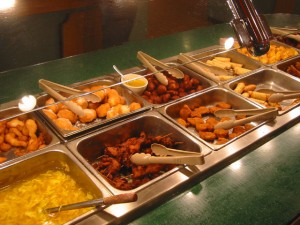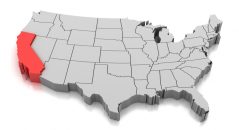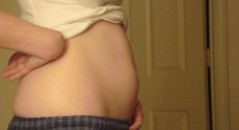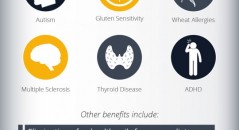 If you want to lose weight, you will need to learn how to eat less. However, this does not mean that you have to go through your day feeling unsatisfied and hungry. Total calories consumed is just one of many factors that play into our level of satisfaction after eating a meal.
If you want to lose weight, you will need to learn how to eat less. However, this does not mean that you have to go through your day feeling unsatisfied and hungry. Total calories consumed is just one of many factors that play into our level of satisfaction after eating a meal.
Behavioral scientist Jennifer Lee, Ph.D. explains that: “Our brains and bodies use a combination of signals to indicate ‘fullness’: sensory signals (taste, smell), gastric signals (full bellies), and nutrient signals (our bodies tell our brains, whether we are lacking in certain vitamins and minerals, etc.).
Understanding some science behind how and why we feel full after a meal could help you eat less. Portion control may seem like a simple concept but many environmental, psychological and physiological factors affect our ability to eat less.
Tips on how to eat less
Get your calories from solid foods. Many liquid foods are very nutritious but they tend to be less satisfying to eat. Research has found that solid foods are more oral-sensory simulating. When the sensory mechanism in our brains is stimulated, the brain will send out a signal to the rest of the body telling it that we are satiated.
Eat slowly. Our hunger levels are controlled by hormones. When the hormone Ghrelin is released in the stomach, it sends a signal to our brains that we need to eat. As we eat our Leptin hormone levels will increase and send a signal of fullness to our brains. It takes about 20 minutes for these hormones to send signals to the brain. If you eat at a slower pace, you will give your brain the time it needs to react to these hormones.
Serve yourself smaller portions. Even if experience tells you that you usually eat more than what is on your plate, start out with slighter potions. Research has shown that people are more likely to eat more if they are served larger portions. In a University of Illinois study subjects were asked to eat soup from bowls equipped with hidden refilling devices that kept the amount of soup in each bowl constant. The study participants who slurped their soup from these special bowls ate 73 percent more soup than those who used ordinary bowls!
Eat without distractions. Eating while distracted often leads to unintended overeating. The practice of mindful eating, focusing on the sensory experience of eating, has been shown to help people eat less. Try eating at a table without any other distractions like the television. Concentrate of the taste, feel, look and smell of your meal. It is likely that you will end up eating less and enjoying it more!
Choose filling, nutritionally dense foods. Foods high in protein, like salmon, and foods high-fiber like veggies and whole grains, take more work to digest. Therefore, these foods are more filling. Approximately 25 to 35 percent of the calories in protein are burned as the body digests it!
No matter what type of diet you are on, eating less is always an important component. These 5 simple tips can help you eat less without feeling deprived.






